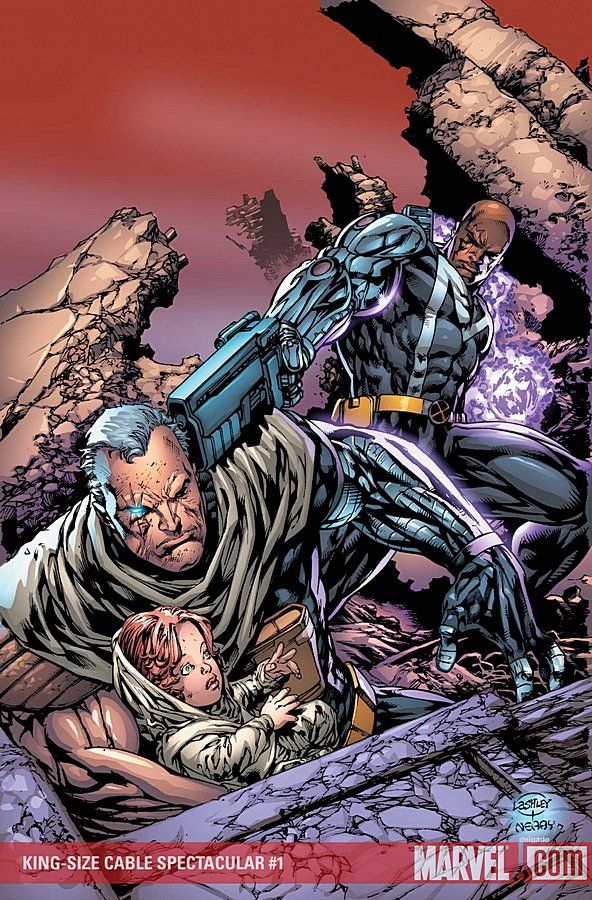While Bishop became, somewhat necessarily, the de facto villain of “Cable” following “Messiah Complex,” that role has always been slightly at odds with his previous depiction. In “King Size Cable Spectacular,” Swierczynski takes the opportunity to give us a look at events from Bishop’s perspective, putting us back inside his head and making his fight seem far more rational, even justifiable. He’s not entirely back in hero mode, still happy to torture, maim and kill in pursuit of Cable, but at least it’s now clear that he -- and the audience -- can believe he’s doing it for genuinely noble reasons.
The issue does contain at least one development important to Cable’s ongoing plot, though not necessarily one we needed to see: Bishop figures out that Cable’s time-circuits are damaged, and that he can only travel forward in time. Even with that knowledge, it’s obvious that tracking someone through the timestream isn’t an easy job, especially someone as experienced as Cable. Bishop is, however, just smart enough to figure it out, and his attempts to catch up with Cable amid hundreds of years' worth of misinformation form the bulk of the story.
Artist Ken Lashley brings with him the kind of stark, determined figures and detail-intensive pencils that you’d usually expect from someone like David Finch. It’s a good fit for a book like Cable. The ability to create a believable, 3-dimensional future is a requirement to keep things from feeling generic, and between Cable and Bishop, the leads and whatever weaponry they choose to employ both need to look futuristic in themselves.
One concern with this story is that it is a fairly long and meandering tale that doesn’t go very far. It’s almost workmanlike in its dedication to Bishop’s quest, with little time for character moments. Perhaps that’s designed to reflect Bishop’s single-mindedness, but it’d be nice to see the man stop for food, or think about something other than his target for a few seconds. If nothing else, he’s currently got the upper hand in terms of time travel, so would it really be a problem if he slowed down briefly?
Even so, for readers of “Cable”, this story represents a fairly important feature-length installment worth reading in place of this month’s absent issue. Meanwhile, those who aren’t reading “Cable” might still enjoy it, as it presents a self-contained flavor of how the series works. It’s nothing more than that, but in fairness, it isn’t trying to be, and succeeds in doing exactly what it attempts to.

